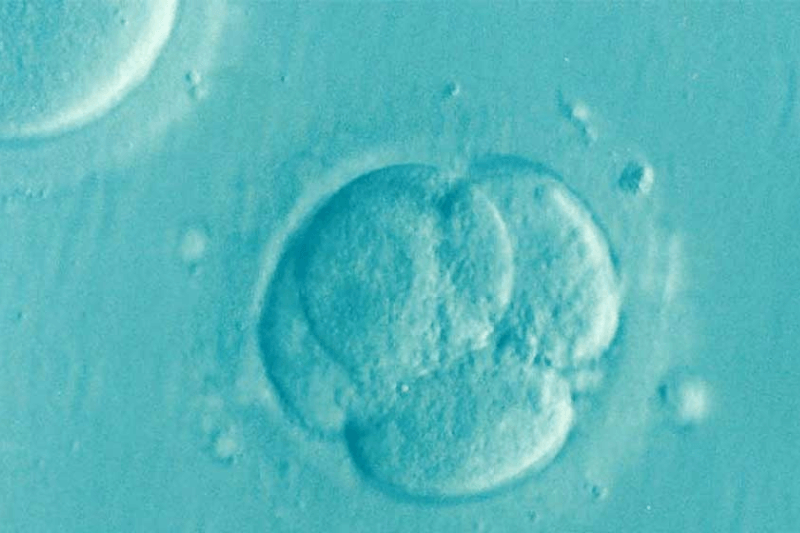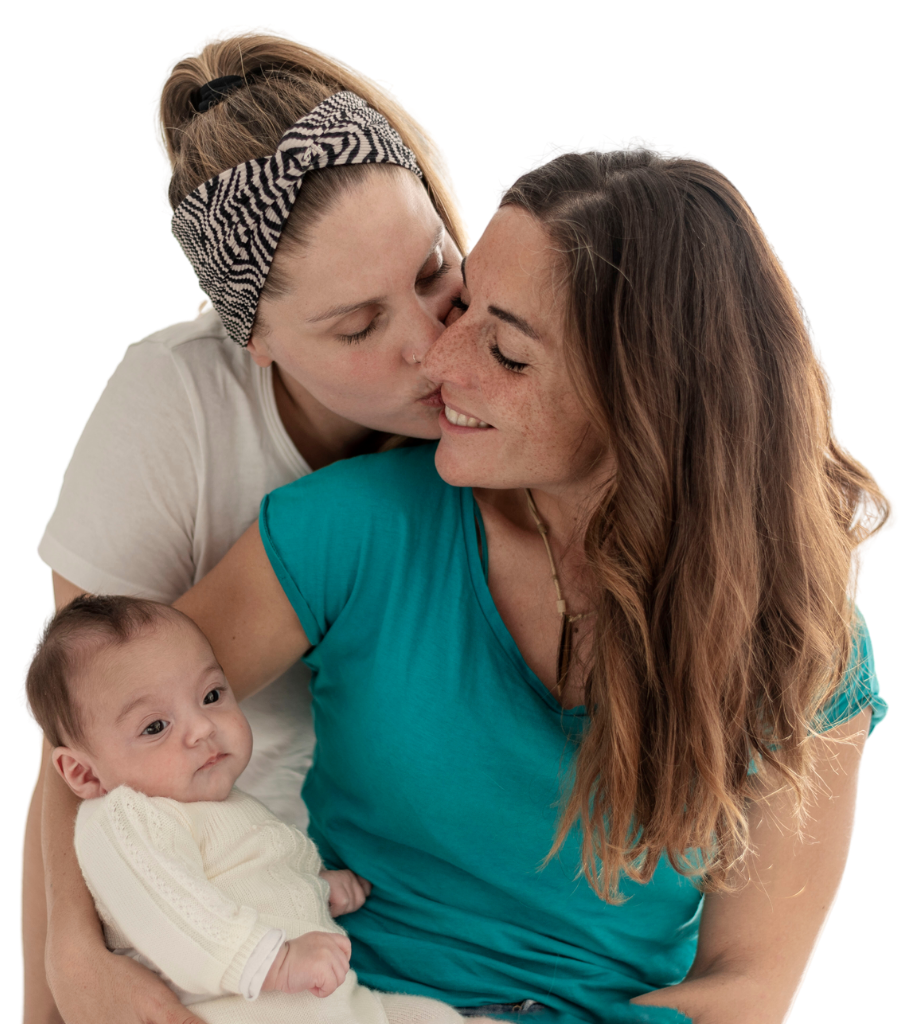Why a Gestational Carrier Is Used
Many people or couples use a gestational carrier to grow their families. A gestational carrier might be needed when
- An intended parent is infertile because of a problem with their uterus
- An intended parent An intended parent can’t be pregnant or give birth due to a serious medical or psychological condition that puts them or the fetus at risk.
- An intended parent is infertile because of a problem with their uterus.
- A person has had a hysterectomy and doesn’t have a uterus or has a uterine malformation.
- The intended parent is biologically incapable of conceiving or bearing a child, such as a single person or a gay male couple.
In gestational surrogacy, the embryo is created through IVF using the eggs and sperm of the intended parents (or donors). The embryo is then transferred to the surrogate who carries the pregnancy. The process starts with selecting a carrier. Next, the carrier and the intended parents sign legal contracts and have various medical and psychological screenings. Once that is finalized, the IVF treatment begins.
Finding a gestational carrier
Most people interested in surrogacy meet with a surrogacy agency to discuss the process and costs of treatment. This agency helps match you with a gestational carrier. It helps establish legal agreements (contracts) between the intended parents and the carrier. Agencies are the middlemen between the carrier and the intended parents. Some couples or individuals choose family members or friends as their gestational carrier. This is generally OK; however, there may be more emotional complexities to selecting someone you know. According to the American Society for Reproductive Medicine (ASRM), an ideal gestational carrier is a:
- Healthy person between the ages of 21 and 45 (preferably younger than 35).
- Person with at least one but no more than five pregnancies and full-term deliveries without complications.
- Person who hasn’t had more than three c-section deliveries.
- Is at a weight that’s healthy for them.
- Any other requirements set forth by the surrogacy agency.
Ideally, the carrier should have a stable family environment with adequate emotional support to help with the added stress of pregnancy. Carriers will have completed a thorough background check. Intended parents typically have to share certain financial data to ensure they can afford a gestational carrier.
Medical screenings for gestational carriers
The intended parents and the carrier must have a medical evaluation, including screening for psychological conditions like depression by meeting with a psychologist. The American Society for Reproductive Medicine says carriers should get a comprehensive medical exam to ensure they are healthy to carry a pregnancy. The organization also suggests they get blood tests that check for sexually transmitted diseases. Carriers should also be current on vaccinations like measles, mumps, rubella and diphtheria, tetanus and pertussis. Sometimes COVID vaccination is required. Intended parents (or the egg or sperm donors) will have genetic screening to assess the child’s risk for congenital disabilities such as Down syndrome
Legal process for gestational surrogacy
Legal contracts must be completed before IVF can begin. The agreement covers things like:
- The gestational carrier will give the baby to the intended parents after birth.
- The carrier’s role and responsibilities during the pregnancy like attending prenatal appointments, not using drugs or alcohol during pregnancy and more.
- Compensation and payment.
- Sensitive issues like termination of the pregnancy, death of the fetus and more.
- All risks and liabilities associated with IVF, pregnancy and childbirth
- Many other scenarios and possible outcomes that may have legal implications.
Surrogacy laws vary by state. Your carrier agency or attorney can help you navigate the legal side of the process, which can be complicated. Using a team of experienced lawyers and signing contracts guarantees that surrogacy is official from a legal perspective.
Frequently Asked Questions About Gestational Surrogacy
How does a gestational carrier get pregnant?
Your healthcare provider will gather your eggs and fertilize them with your partner’s sperm in a lab. In some cases, donor eggs or donor sperm are used. If the intended parent uses her eggs, she will take fertility medication to produce as many eggs as possible for fertilization. An embryo forms after sperm fertilizes one or more eggs. The gestational carrier takes fertility medicine to prepare her uterus for an embryo. Once the embryos form, one or more are implanted into the gestational carrier’s uterus.
Who is involved in the gestational carrier process?
The gestational carrier process involves several people:
- The gestational carrier.
- The intended parent(s).
- Egg or sperm donors.
- Surrogacy agency.
- Fertility center.
- Lawyers or legal counsel.
- Pregnancy care providers, like obstetricians or midwives.
- Mental health providers.
- Genetic counselors.
What are the risks of using a gestational carrier?
There are risks for couples or individuals who use a gestational carrier. Some of the most common risks are:
- No guarantee the pregnancy will be successful or go to term.
- Risks of fertility treatment and medical procedures to the intended parents or carrier.
- Financial risk associated with IVF, medical procedures, legalities and compensation.
- Emotional risk of miscarriage, complications and other health conditions.
- Frustration over lack of control over the carrier, the pregnancy and other factors.
There are also risks to the carrier.
- They must get routine prenatal care throughout the pregnancy.
- Carriers inherit all the risks of pregnancy complications like high blood pressure, and infections.
- Carrying another person’s pregnancy can be emotional, time-consuming and challenging for the carrier’s spouse or children. While most carriers are happy to help a couple or person become a parent, they can still become attached to the baby after delivery.
What are the benefits of using a gestational carrier?
Gestational carriers provide couples or individuals with an option to expand or build a family when it’s not biologically or physically possible. This is often a dream come true for people who otherwise wouldn’t be able to be a parent due to uterine problems, medical or psychological conditions, or marital status.
Can a gestational carrier keep the baby?
No, a gestational carrier can’t keep the baby. A legal contract is signed by the intended parents and their gestational carrier before fertility treatments begin. This document states that the carrier must give the baby to the intended parents after delivery. The carrier also has no biological connection to the child and has no parental rights.
What does a gestational surrogate cost?
Many different factors go into the cost of surrogacy like legal fees, medical expenses, agency fees, compensation for the carrier, geographical location and other miscellaneous expenses. You can expect to spend at least $50,000 and up to $150,000 or more for a gestational carrier. Remember that IVF doesn’t always work on the first try, so you may have to repeat the process.










